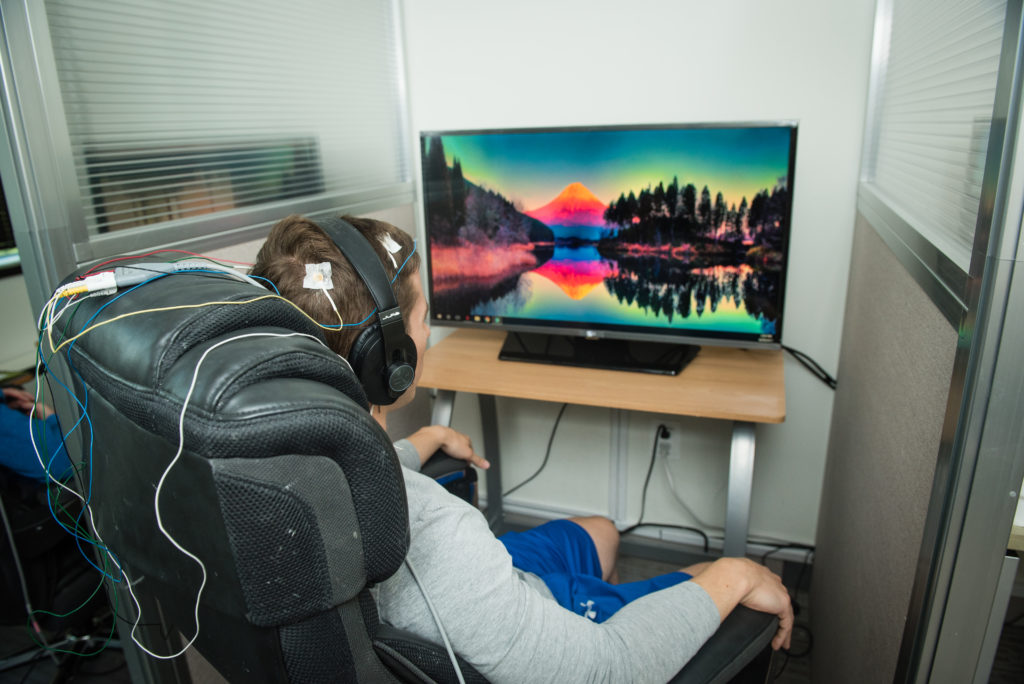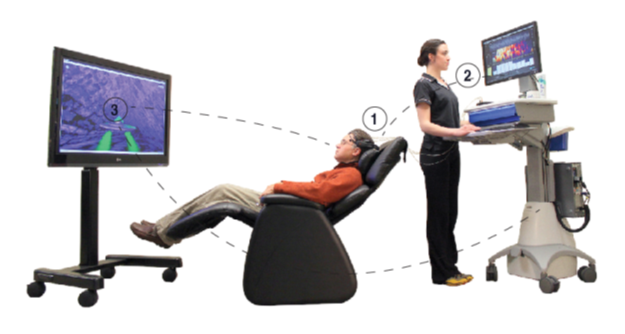Neurofeedback is a form of biofeedback that uses your brain wave patterns (obtained via live EEG recording) to help you become more calm and focused. Based on a large number of placebo-controlled research studies, neurofeedback harnesses your brain’s natural neuroplasticity and regenerative system to improve your attention, focus, sleep, and mood.

Neurofeedback is a computer-based method for improving memory, attention, mood, and sleep through providing the patient with information about his or her EEG pattern, and then rewarding normalization of brain wave activity through visual and auditory feedback. Each patient receives a personalized neurofeedback protocol based on his or her symptoms (e.g., anxiety, insomnia, or attention deficit) and baseline abnormalities in neurocognitive tests and brain mapping (qEEG).

A neurofeedback session lasts approximately one hour. During your session, we will ask you to sit in front of a television screen as a technician attaches sensors to specific locations on your scalp. You may choose to watch any movie or television show that we have available. As you watch, electrodes will record the activity of your brain and the screen will dim or flicker according to these patterns.
Yes. Several hundred studies have shown that patients with ADD or ADHD, memory loss, anxiety, insomnia, dizziness and vertigo, migraine, and depression achieve remarkable improvements within 3 months of treatment with neurofeedback. Neurofeedback has also been used to enhance learning and cognitive function in normal clients. The optimal training protocol involves 24 one-hour sessions that are usually performed twice a week for 12 weeks.
As with most forms of treatment, neurofeedback results will vary with each individual. The number of sessions that it takes to achieve results depends on the age of the client and the severity of his or her condition.
No. Neurofeedback enhances your brain’s natural abilities to improve itself without any medications or direct brain stimulation. These interventions help stimulate the growth of new pathways in your brain, producing long-lasting benefits.
When administered by a qualified specialist, neurofeedback training produces few, if any, negative side effects. There are few published reports of negative side effects. Clients usually find neurofeedback to be an interesting and engaging experience that feels good and is quite relaxing.